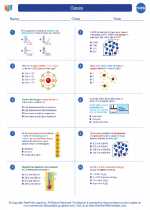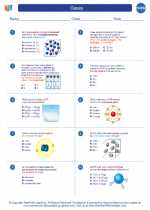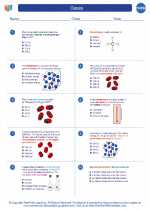Mutation: Understanding the Basics
Mutations are changes in the genetic material (DNA) of an organism. These changes can occur due to various factors such as exposure to radiation, chemicals, or errors in DNA replication. Mutations can have various effects, ranging from being harmless to causing serious genetic disorders.
Types of Mutations
- Point Mutations: These involve the alteration of a single nucleotide in the DNA sequence. They can be further classified as:
- Substitution: A single nucleotide is replaced by another.
- Insertion: An extra nucleotide is inserted into the sequence.
- Deletion: A nucleotide is removed from the sequence.
- Frameshift Mutations: These occur when the addition or deletion of nucleotides causes a shift in the reading frame of the genetic code, leading to a completely different protein being synthesized.
- Chromosomal Mutations: These involve changes in the structure or number of whole chromosomes and can have significant impacts on an organism's phenotype.
Effects of Mutations
The effects of mutations can vary widely. Some mutations may have no discernible effect, while others can lead to:
- Genetic disorders
- Increased genetic diversity
- Evolutionary changes
Studying Mutations
When studying mutations, it's important to understand the molecular mechanisms behind them, including the role of DNA replication, repair mechanisms, and the impact of mutagens. Additionally, it's crucial to be familiar with specific examples of genetic disorders caused by mutations and the ways in which mutations contribute to evolutionary processes.
Key Concepts to Master:
- Types of mutations and their molecular consequences
- Effects of mutations on protein structure and function
- Mechanisms of DNA repair and their significance in maintaining genetic stability
- Examples of genetic disorders caused by specific mutations
- The role of mutations in evolution



